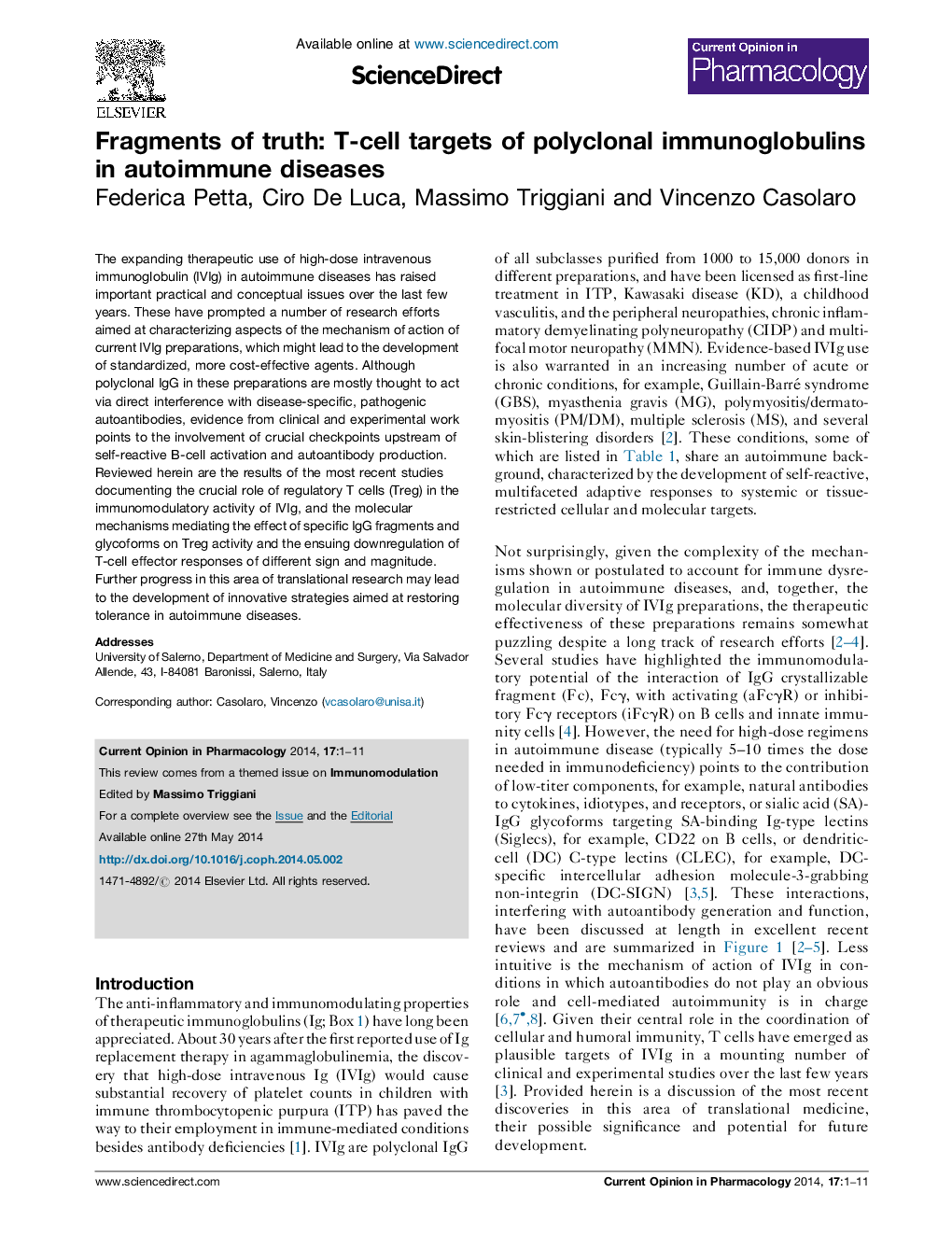| Article ID | Journal | Published Year | Pages | File Type |
|---|---|---|---|---|
| 2529886 | Current Opinion in Pharmacology | 2014 | 11 Pages |
•IVIg are widely used in autoimmunity, yet their mechanism of action is still obscure.•Besides interfering with autoantibodies, IVIg may modulate cellular immunity.•IVIg can affect T-cell effector responses regardless of the cytokine secretion profile.•IVIg induce the expansion of antigen-specific regulatory T cells (Treg).•Treg activation by IVIg involves the interaction with tolerogenic dendritic cells.
The expanding therapeutic use of high-dose intravenous immunoglobulin (IVIg) in autoimmune diseases has raised important practical and conceptual issues over the last few years. These have prompted a number of research efforts aimed at characterizing aspects of the mechanism of action of current IVIg preparations, which might lead to the development of standardized, more cost-effective agents. Although polyclonal IgG in these preparations are mostly thought to act via direct interference with disease-specific, pathogenic autoantibodies, evidence from clinical and experimental work points to the involvement of crucial checkpoints upstream of self-reactive B-cell activation and autoantibody production. Reviewed herein are the results of the most recent studies documenting the crucial role of regulatory T cells (Treg) in the immunomodulatory activity of IVIg, and the molecular mechanisms mediating the effect of specific IgG fragments and glycoforms on Treg activity and the ensuing downregulation of T-cell effector responses of different sign and magnitude. Further progress in this area of translational research may lead to the development of innovative strategies aimed at restoring tolerance in autoimmune diseases.
